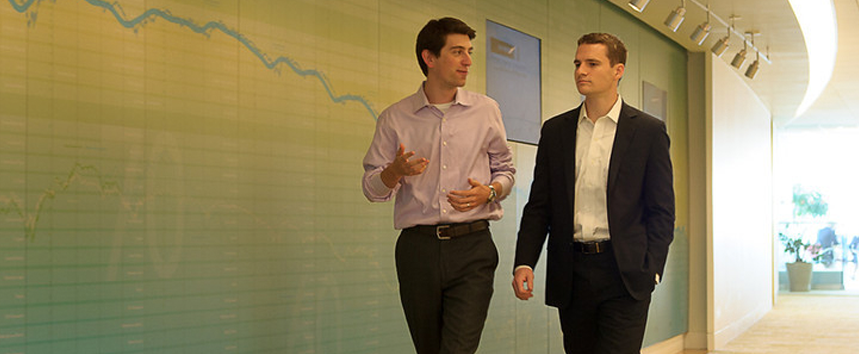Fund Management Careers Overview
Post on: 4 Апрель, 2015 No Comment

So you think you can be a fund manager?
Maybe you’re thinking of becoming the next Bill Gross – or you’ve been swayed by the whispers of a job in finance that actually pays you well while allowing you to maintain some semblance of a life.
If you’ve read the first part of our interview on resurrecting a career in fund management. you’d realize that the vocation isn’t all fun and games. There’s a lot of hard work involved and more than a few pitfalls along the way.
This time around, our interviewee returns to give you the scoop on what it’s really like to be a fund manager .
Here’s what you’ll learn in part 2 of the interview:
- What an average day in the life of a Fund Manager is like
- The pros and cons of working in Fund Management
- What pay, bonuses, and exit options are like
- The characteristics you’ll need to do well in the field
A Day in the Life
Q: Let’s get right down to business. We’ve already heard the juicy bits of your escape from the back office – now we’d like to step into your shoes.
So what do you actually do as a fund manager? How do you invest?
A: It really depends. The industry encompasses so many different methods of investing that it differs from one fund to the next. What one portfolio manager does day-to-day could be drastically different from another portfolio manager.
My fund focuses on strategic and tactical asset allocation. and we allocate our funds to equity, fixed income and private equity. “Strategic and tactical” is really just a fancy way of describing how we deploy money:
- Strategic: Longer-term investments
- Tactical: Short-term, market-oriented opportunities
Q: It does seem like the industry has a way of making things more complicated than it needs to be.
Pardon my ignorance, but could you describe what you’re doing as “dynamic asset allocation”?
A: That could be a way of describing the tactical portion of our portfolio.
It’s definitely true that the industry has a way of making things a lot more complicated than it has to be. There are a million and one ways to spin the same yarn but it essentially boils down to making long-term or short-term investments .
If someone tries to claim they’re doing something different, always ask them for clarification and figure out which of those two they’re doing.
Q: Thanks for clearing that up. Let’s get back to what you do during an average working day – can you walk us through what it might look like?
A: I usually start quite early and I reach work by around 7AM. I start off easy by catching up with the financial news before having a huge cup of coffee to keep myself juiced for the day. This is the only portion of my day that is constant.
I’m a one-man team, so I have to manage everything from treasury activity to investment decisions. As such, my work depends on where we are in the month and what needs to be done when.
No cash drag is allowed so I have to make certain that excess cash goes into money market funds, structured deposits and fixed deposits. I manage this once a week or so.
The first and last week of the month tend to be easy weeks, when we rebalance our portfolios. This is usually the time when I generate investment ideas .
The bulk of the middle weeks are for refining these ideas and for preparing materials to present to the investment committee.
On a day-to-day basis, I’m usually busy with emails, meetings, working lunches and going through research portals.
We also have to deal with negotiations over ISDA agreements which also take up a fair chunk of time.
Long story short, with these agreements we lay out terms explaining how both parties (us and the person/firm were trading with) will enter into transactions.
Overall, my work hours roughly follow market hours but just as with other trading and buy-side roles, the actual work day is always longer so you dont necessarily have as much free time as youd think.
Q: You mention that you have to present the ideas to an investment committee . Does this mean you don’t have autonomy in the decision making? How does that work?
A: At my firm, there isn’t complete autonomy so yes, you need to run your ideas by a committee first. But it really depends on the size, setup and culture of the company.
Our investment committee consists of the CFO, regional CIO, and other investment managers.
The investment managers present their findings and the committee puts it to a vote.
Q: Any insight on the characteristics of people who’ll do well in this industry?
A: I think a very important trait that’s usually overlooked is tenacity .
You can talk all you want about being interested in the market and being extremely analytical but all of that goes out the window if you can’t even stick to your strategy.
Markets will go against you and there’ll always be bear markets, but you can’t just flip a switch and go against your investment plans once things go a little haywire.
There’s way too much noise in investing and even successful fund managers can find themselves following a “shotgun” approach in a bad market, jumping from strategy to strategy.
You have to realize that you’ll always be a student of the markets, and that success comes from constantly learning and refining your investment process.
If you’re constantly questioning research and challenging convention, you’ll do well.

Q: Can you tell us about the pros and cons of the job? What do you like best and what are your biggest gripes?
A: I’ve always thought it was much better to be on the buy-side. The hours aren’t crazy, you earn decent money and there’s always someone offering to buy you a snazzy lunch or dinner.
On the actual work itself, it’s always a challenge to outperform benchmarks and if you’re interested in the markets at all, it can be very stimulating. It never ceases to amaze me how much money we have control over.
That said, you have to come into this industry with your eyes open. It’s not as simple as being given a boatload of money and deciding what asset classes to get into.
There’s a lot of extraneous work involved as well – investment reporting, getting the necessary approvals, and answering emails take up a lot more time than you’d expect.
So you’re going to spend a lot of time on administrative stuff than you think, and just like on the sell-side. you can end up doing lots of grunt work as well.
Show Me the Money
Q: So what exactly is “decent money”? Can you tell us a little about pay and bonuses?
A: That’s a sensitive topic for me and I’d rather not go into detail about my financial package. A comparable sell-side role would definitely bring in a bigger paycheck, but the difference isn’t as large as you’d think.
What Ill say is:
- For junior people here, base salaries are comparable to the sell-side.
- Bonuses tend to be lower at the junior levels vs. banking. but they dont trail too far behind.
And at the senior levels, its a lot more variable and performance-dependent, so its hard to do a direct comparison.
Q: People often say that a Portfolio Manager is similar to a role as a Managing Director in investment banking .
Would you say that the pay scales are similar?
A: Nice attempt there at getting my pay information. Sorry, but I’m not biting. Let’s move on.
Q: Fair enough. If you’re not willing to discuss pay, can you at least tell us a little more about exit opportunities?
A: Sure thing. Frankly, most people don’t tend to think of exiting after they get here. Usually most people tend to stick with the job or go do exactly the same thing at another firm.
Starting your own fund could also be an option, but it’s an option that involves a lot more risk. In this economic climate, even investment managers with good track records might have difficulty raising funds.
Ive also seen instances of portfolio managers transitioning to selling Asset Liability Management (ALM) solutions but some people see it as taking a step down from fund management.
In a nutshell, ALMs are more about risk management and managing the risks that come up due to the mismatch between assets and liabilities of a bank so thats why its often viewed as less glamorous than a direct investing role.
Q: That’s interesting. So if someone were forced to leave and take on a role such as selling ALMs, is that usually because he/she did not perform well?
A: Possibly, but that doesn’t always have to be the case. You have to realize that even though working in asset management isn’t as volatile as working in the hedge fund industry. there’s still a fair amount of pressure that comes with the job.
Some people do get tired of this life even if they’re performing relatively well; just like any job, it can turn into a grind if you find yourself doing the same types of tasks over and over again.
And as the disclaimer goes, past performance isn’t indicative of future performance.
Outperforming the market isnt easy at any level, and some people just decide to move onto another job where they feel they have slightly more control.
Q: Would this be something you’d ever be interested in doing? What are your future goals in the industry?
A: Not really. I think I’m too obsessed with the markets to ever want to switch to something different.
At the moment, I’m happy with where I am and what I’m doing, and I don’t think that’ll change for a while.
Q: That’s great to hear. Thanks for the sharing your story.
A: Just trying to pay it forward. It was a real pleasure.
Fund Management Series














